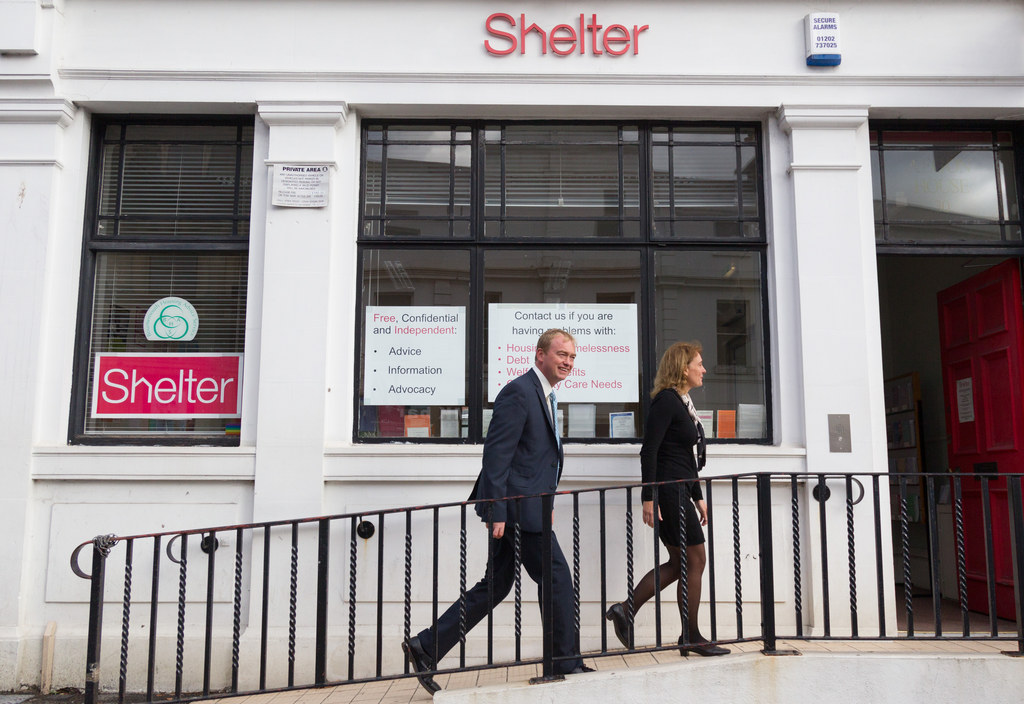
The housing charity Shelter has written a letter to the Cabinet Office, asking it not to use the charity's name in defence of its controversial anti-lobbying clause.
The clause is supposed to prevent charities from using taxpayer-funded grants to lobby the government or parliament. Charities have told BuzzFeed News it is an ideologically driven attack on a problem that "doesn't exist" and will cost the government money in the long run because it will reduce the quality of evidence it is given.
The government has used the example of Shelter on a number of occasions as a charity that is already subject to the clause (which is written into funding from the Department for Communities and Local Government) and has not had its work affected. In the press release for the clause, the government said "this has not prevented the organisation from using its own funds to lobby on housing legislation in this Parliament".
In parliament, the Cabinet Office minister Lord Bridges of Headley has twice cited Shelter as evidence the clause will not stop lobbying by charities, on one occasion saying: "Shelter ... has received a grant, and is currently running its Power to Renters campaign."
Last month, the government announced it was to suspend the clause while taking feedback from various institutions.
That day, in a letter recently uploaded to the charity's website, Shelter's chief executive, Campbell Robb, said it was being "misrepresented" by such remarks. He asked that the government "cease referring to Shelter in this context in future."
The Cabinet Office would not comment on the letter, but has confirmed that Cabinet Office minister Matt Hancock has received it.
Robb wrote: "I accept that it is the case that Shelter's grant agreement with DCLG contains this clause, and that we do continue to lobby government on housing policy. However, the use of Shelter's name implies that we have given our blessing to this initiative, when it [sic] fact we were never made aware that we were participating in a pilot and have at no time been asked whether the clause has any impact on our lobbying work."
Robb told BuzzFeed News: "Any government money received by Shelter to run its services is explicitly ring-fenced for that work, but it is essential for charities to still be able to use their on-the-ground insight to work with government to improve policies.
"Despite our name being used regularly in defence of this policy, we were not consulted by the government on whether the clause has had an impact on our work. We believe that it is misrepresentative to use our one unique service as an example to justify restrictions on other charity projects, and welcome the pause in the implementation of the policy whilst the government conduct a more thorough review."
This, the latest intervention by a major organisation on the subject, will continue to pile pressure on the government over the clause. So many universities have expressed their concern about researchers in the higher education sector being silenced that Universities UK, the nation's leading advocacy organisation for the higher education sector, is understood to have entered into talks.
There has also been criticism by the Commons science and technology committee, which warned the clause could make academics unwilling to take up advisory positions in government.
On Wednesday the committee welcomed the government's decision to suspend the clause. Sarah Wollaston, the chair of the health select committee, has also said that the clause could have a negative effect on public health.
Charlotte Ravenscroft, head of policy at the National Council for Voluntary Organisations, which represents charities, said: "It's good that Shelter have made their views known. It's clear that the government has no real evidence for this policy. The only effect of the clause will be to deter charities from providing legitimate feedback to MPs and civil servants.
"We welcome the government's decision to pause its implementation and we hope they take this opportunity to conduct a full assessment of the potential impacts."

Asheem Singh, director of public policy at the Association of Chief Executives of Voluntary Organisations, said: "We share Shelter's disappointment that the government has been using their example in error and trust that there will be a full clarification of the matter.
"No one deserves to have their position misrepresented, least of all by the government that is supposed to be working with them to help create better outcomes for our most vulnerable citizens. Similarly, no vulnerable person deserves to have the government's anti-advocacy clause foisted upon the organisation that is there to help them. It serves only to silence their voice and prevent their experiences from being brought to the attention of MPs, civil servants and policymakers."
He said: "The government's decision to pause the clause's implementation is correct. This is a crucial window and they must use this time wisely, to do what this clause places at hazard: consult, consider and listen to the voices of those on the ground, whether funded by government grant or otherwise.'
While charities have called into question the quality of research used to generate the clause, there is some evidence that public money has been used in this way before. In written evidence to parliament the former education minister Tim Loughton said the now-closed south London charity Kids Company threatened legal action against proposed social reforms, "no doubt financed out of public funds".

